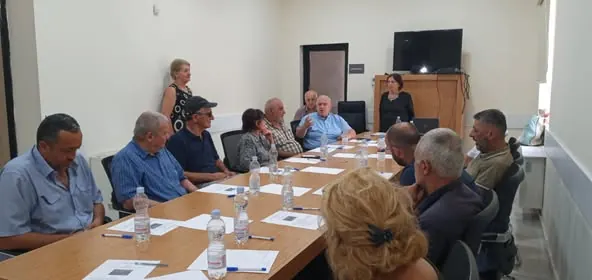The Bioagro-production research service of the SIP Agriculture Scientific and Research Center conducted a theoretical and practical training session for farmers in Arkhiloskari village, Dedoplistskaro municipality. Notably, the farmers were trained on the issues of bi-directional care of local salude curry varieties
The goal of the training was to familiarize participants with the characteristics of biodirectional care for local Salude direction barley, to promote bio-agro-production practices, and to introduce agrotechnical methods that help bring barley varieties into an environmentally friendly environment.
Representative of Bioagro-Industries Research Service, Mzeinab Saralidze, provided detailed information to the participants of the training about the characteristics of biodirectional production of Kerry, the importance of restoration and preservation of local breeds, which is an essential condition for preserving agro-biodiversity and promoting quality production of Georgian beer.
Practical training was held on the test plot of local farmer Mariam Tsiklauri’s curry. Gocha Tsereteli, the head of the Bioagricultural Research Service, spoke about the results of the research on the variety of berries chosen for bioagricultural products – “Zes 5”.
According to his statement, the best effect out of the 12 biopreparations used was shown by Bioagro Ltd.’s liquid Biohumus, Geohumat, and Biosuper, which contributed to the growth of seed yield. In the trial plots, the harvest was 0.06-1.15 tons more than the control option.
The training discussed arranging demonstration plots of local barley breeds, which will help in future assessing their practical potential and attracting beer producers’ interest.
Scientific-Research Center of Agriculture continues to search for Georgian local varieties of Kerry both throughout the country and from foreign gene banks. The Centre is actively working to raise awareness among farmers, conducting meetings and training in the regions, which will continue in the future to promote bioproduction and protect agro-biodiversity.



